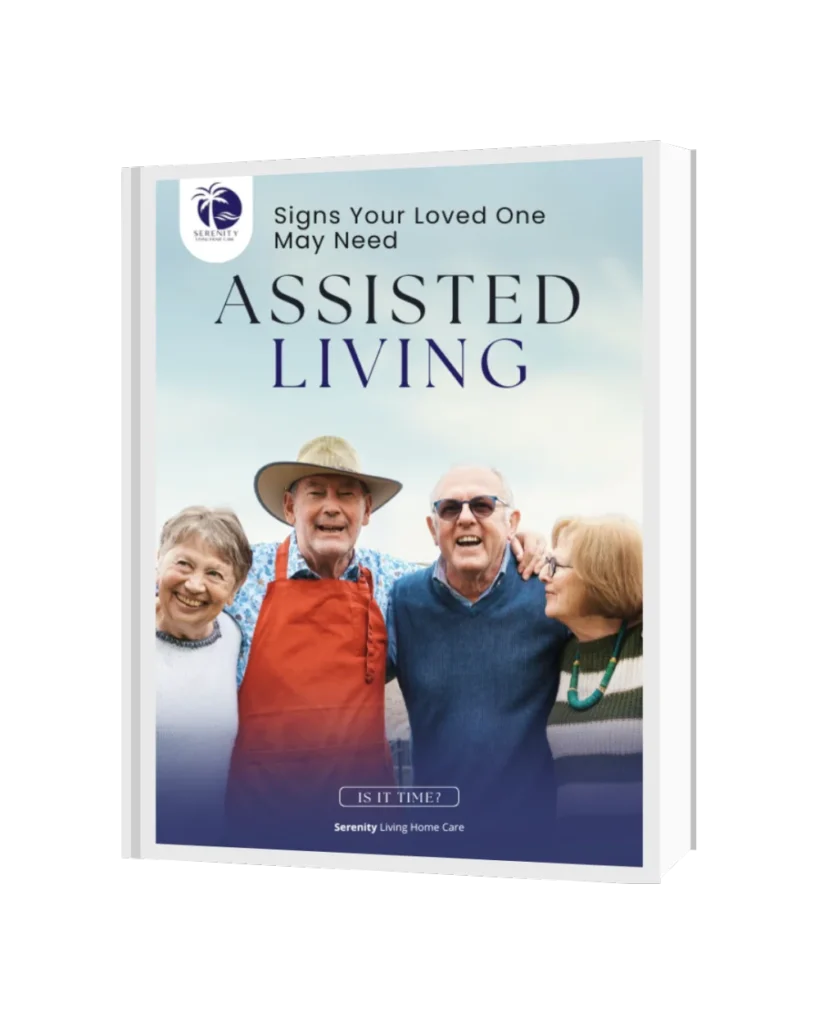Medication is a fact of life for many older adults. But managing it properly is far more complex than simply handing out pills. In an assisted living environment, medication management is an essential safeguard—one that promotes consistency, supports independence, and provides peace of mind for families. At Serenity Living, this process is foundational to the care we provide.
This blog covers the meaning of Assisted Living Medication Management, why it’s more than just medication administration, and how it supports older adults who rely on multiple prescriptions. If you’re seeking safe, trustworthy solutions for your loved one’s care, understanding this service can help you make more confident decisions.
Key Takeaways
- Assisted Living Medication Management ensures medication is dispensed correctly, reviewed regularly, and monitored for side effects.
- It includes communicating with physicians, adjusting medications as needed, and documenting every step.
- Compared to medication administration, it is a much broader and more supportive system.
- Senior living communities like Serenity Living take a proactive approach—reducing risk while preserving dignity and daily stability.

What Is Medication Management in Assisted Living?
Medication management for seniors in assisted living goes well beyond counting pills. It’s a coordinated process handled by trained staff who ensure each resident gets the right medication at the right time. This includes reviewing prescriptions regularly, communicating changes with healthcare providers, and monitoring for effectiveness and side effects.
Unlike home settings where families may struggle to stay on top of multiple prescriptions, assisted living communities like Serenity Living Home Care provide a structured, accountable system. Staff document every dose and update records immediately when a change occurs. They also make sure residents are informed and comfortable throughout the process—reducing confusion, missed doses, or adverse reactions.
Most importantly, medication management aligns closely with a resident’s overall care plan. It doesn’t function in isolation—it’s part of a larger, person-centered support system. And that’s critical, especially for residents with chronic conditions who may not be able to advocate for themselves.
Why Managing Medications Gets Harder with Age
Aging often brings an increase in medications. In fact, data from the National Institutes of Health shows that about 40% of older adults take five or more medications daily. This rise in prescriptions—known as polypharmacy—can complicate routines and create health risks if not carefully monitored.
Age-related conditions like diabetes, hearing or vision loss, memory decline, or frailty can make it physically and cognitively harder for older adults to manage their own medications. Even with pill organizers or reminders, confusion and missed doses are common.
When these challenges go unaddressed, they can lead to medication errors, hospitalizations, and serious side effects. Assisted living medication management provides a safety net. It allows trained professionals to take over the complexities of scheduling, administering, and adjusting prescriptions—while still keeping families informed and involved.
What Is the Role of Assisted Living in Medication Management?
Staff in assisted living facilities don’t just give medication—they help build a system of accountability and health oversight. Their role involves daily vigilance and constant communication with external providers.
At Serenity Living, staff follow clearly defined guidelines for medication that align with state regulations and internal safety protocols. These professionals:
- Ensure timely and accurate medication dispensing.
- Track each resident’s reactions or side effects.
- Document every dose given, missed, or refused.
- Communicate updates or concerns with the prescribing physician.
- Refill medications and check for duplicate or outdated prescriptions.
They also observe patterns that may not be obvious to family members—changes in mood, appetite, mobility, or sleep—that could be signs of medication-related issues. This kind of proactive care helps avoid emergencies and ensures that residents remain stable and comfortable.
Medication Management vs. Medication Administration
Although often used interchangeably, these two terms have distinct meanings—especially when it comes to senior care:
- Medication administration refers to the act of giving a resident their prescribed medication. This could involve handing a pill, applying a patch, or administering a liquid or injection. It is a basic but critical task, requiring staff to follow dosage instructions exactly.
- Medication management, however, includes administration plus ongoing oversight: reviewing prescriptions for changes, checking for harmful interactions, coordinating with providers, and updating the resident’s care plan accordingly.
At Serenity Living, medication administration is just the beginning. We provide full medication management for seniors, ensuring that each prescription supports the resident’s current health needs.
Top Benefits of Medication Management for Seniors
- Fewer Medication Errors
Trained staff ensure the correct dose is taken at the correct time, reducing risk. - Improved Health Outcomes
Close monitoring helps identify side effects or inefficiencies early—before they become serious. - Peace of Mind for Families
Families don’t have to guess if mom or dad took their medications that day. - Personalized Adjustments
Medication plans are regularly reviewed and tailored to fit evolving health conditions. - Emergency Prevention
Proper oversight helps prevent hospitalizations due to overmedication, underdosing, or interactions.
How Medication Reviews Help Seniors Stay Well
Even when prescriptions are accurate at the time they’re written, they don’t always stay appropriate over time. Health conditions shift. New medications may be added. Old ones may no longer be necessary—or may now interact negatively with another drug.
Regular reviews are a critical component of medication management in assisted living. At Serenity Living, we perform these reviews in coordination with healthcare providers, making sure every prescription still aligns with the resident’s goals and medical history.
Medication reviews also help identify issues like duplicate medications, outdated prescriptions, or missed opportunities to simplify regimens. Many assisted living communities today have protocols in place for routine medication audits and checks.
This process protects residents from being overmedicated or taking drugs that are no longer needed—and can even support cognitive clarity, mobility, and improved mood.
How Serenity Living Delivers Medication Management
Serenity Living approaches medication management for seniors with the same care and attention we give to all aspects of well-being.
- Accurate Dispensing: Medications are stored securely and dispensed according to strict protocols.
- Real-Time Documentation: Every action is recorded, so families and physicians can stay updated.
- Close Monitoring: Staff are trained to notice symptoms or behaviors that may indicate side effects or ineffectiveness.
- Healthcare Communication: We coordinate directly with prescribing doctors when adjustments are needed.
- Resident-Centered: We involve residents in the process when possible, helping them feel safe and informed.
This system allows medication to be part of a bigger picture—one that supports the resident’s life, not just their medical chart.
Conclusion
Choosing assisted living isn’t only about where someone lives. It’s about how they’re supported—especially in daily essentials like managing medications. When done well, Assisted Living Medication Management enhances health, reduces risk, and brings relief to families who want the best for their loved ones.
At Serenity Living, we take this responsibility seriously. We build medication support into every layer of care, ensuring that no detail is missed and every resident gets exactly what they need. This is more than convenience—it’s about safeguarding health and honoring dignity.
If you’re ready to learn how our senior living community can simplify medication routines and provide dependable oversight, reach out to Serenity Living today.
Frequently Asked Questions about Assisted Living Medication Management
What is medication management in assisted living?
Assisted Living Medication Management is a structured process that ensures seniors receive their medications safely, accurately, and on schedule. In a senior living community like Serenity Living, this service includes not only medication administration but also coordination with healthcare providers, routine reviews of prescriptions, and monitoring for side effects. It’s a proactive system that supports health, independence, and emotional well-being by removing the risks of missed doses, duplications, or harmful interactions—especially important for older adults managing multiple medications.
What is the 30 minute medication rule?
The 30 minute medication rule is a guideline in many senior living communities that allows for a 30-minute window before or after the scheduled time to administer medication. This rule helps staff maintain accuracy while managing the complex routines of multiple residents. In the context of medication management for seniors, this rule ensures flexibility without compromising safety. Serenity Living follows strict guidelines for medication to ensure residents receive the right dose at the right time—preserving both their health and dignity.
How to manage medication for the elderly?
Managing medications for elderly individuals involves much more than reminders. It requires a system that tracks dosages, monitors for side effects, and adjusts treatment based on evolving health needs. In assisted living, medication management is carried out by trained staff who communicate regularly with physicians, update care plans, and document every step. This level of oversight is especially helpful for seniors with chronic conditions, memory challenges, or complex medication regimens—ensuring their treatment remains safe and effective within the senior living community setting.
How do you organize medications for seniors?
Organizing medications for older adults often starts with pill organizers or reminder apps at home. But in assisted living, organization becomes part of a larger medication management protocol. Staff at Serenity Living handle medication storage, dispensing, documentation, and refills. They use resident-specific schedules and maintain logs to track medication administration—preventing missed doses, duplications, or interactions. For families, this means peace of mind knowing their loved one’s medications are consistently managed with precision and care.


